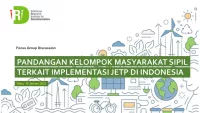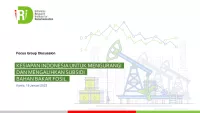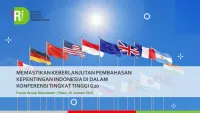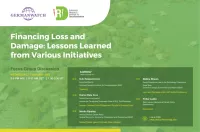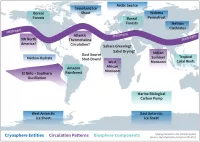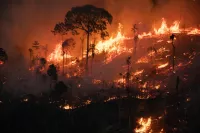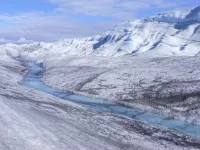Blog Liste
Year after year, the CCPI finds economically developed countries from the Global North, including many EU countries, contributed disproportionally to global warming. Factors such as high greenhouse gas (GHG) emissions, lagging climate policy, and high energy use are responsible for a low rank in the CCPI. However, which are the worst polluters, and why? The CCPI can identify them in several easy-to-understand ways. It shows their poor climate performance and opportunities for them to improve on it and take effective climate action.
On Friday, 10 March 2023, the EU’s Foreign Affairs Council (FAC) adopted its conclusions on climate and energy diplomacy for this year, entitled: ‘Bolstering EU climate and energy diplomacy in a critical decade’. In this blog post, we present the key priorities to which the Council agreed and highlight the areas where the EU needs to provide more clarity and increase its ambition.
Indonesia's Just Energy Transition Partnership (JETP) is one of the outcomes of the G20 Summit that Indonesia hosted in 2022. The partnership is an agreement between Indonesia and the countries of the International Partners Group (IPG). It aims to mobilise finance for Indonesia to decarbonise and phase out the construction and operation of coal-fired power plants. The Indonesia Research Institute for Decarbonisation (IRID) and Germanwatch hosted a focus group discussion with CSOs including relevant research institutions on 18 January 2023 in Jakarta. The discussion was held to obtain feedback and input from CSOs working on topics related to the JETP.
Fossil fuel subsidies have long been a subject of discussion for the G20. As one of the G20 countries, Indonesia needs to prepare for the removal and redirection of fossil fuel subsidies without creating long-term negative impacts, especially in socio-economic terms. The Indonesia Research Institute for Decarbonisation (IRID) and Germanwatch confirm the need for G20 countries to reduce and shift fossil fuel subsidies. As this requires the readiness of G20 developing countries, on 19 January 2023, IRID and Germanwatch hosted a group discussion focused on Indonesia.
In 2022, Indonesia had the opportunity to host the annual G20 Summit, where the energy transition played a major role. The summit produced two key documents on energy, namely the Bali Roadmap and the Bali Compact. Both documents are expected to serve as a reference for G20 countries to achieve a just energy transition, even after Indonesia’s G20 presidency. The Indonesia Research Institute for Decarbonization (IRID) and Germanwatch acknowledge that this is important in order to avoid that dialogues at the G20 Summit start from scratch. For this reason, a focus group discussion took place in Jakarta on 25 January 2023. The discussion was limited to invitees.
Extreme weather events are increasing in intensity and frequency due to the impacts of climate change. Without appropriate intervention, Loss and Damage will be inevitable, despite efforts at adaptation, mitigation, and even disaster risk management. To understand how Loss and Damage financing will be discussed after the G20 Summit led by India and after COP27, the Indonesia Research Institute for Decarbonisation (IRID) and Germanwatch hosted a focus group discussion on 11 January 2022. The event aimed to gather information on different initiatives on Loss and Damage financing, including access modalities, challenges, and coping strategies.




